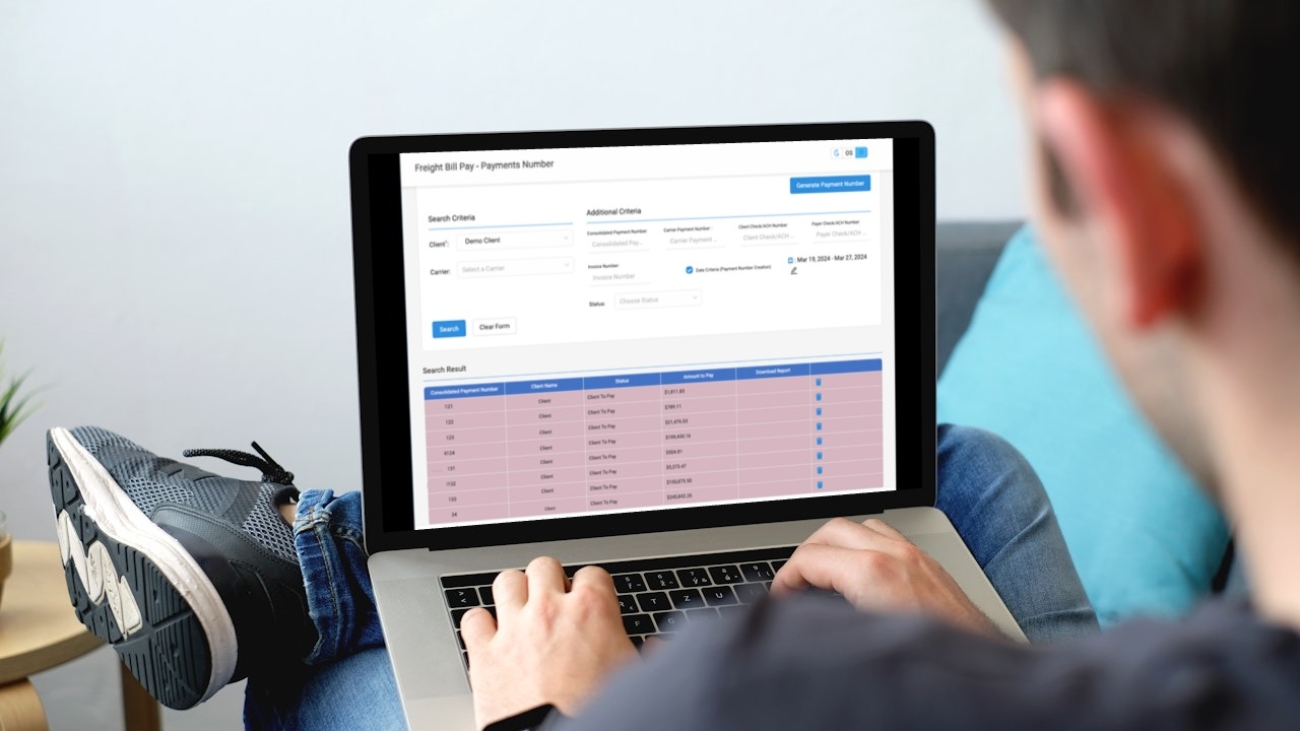Disruptions in the global supply chains are affecting businesses worldwide. The price of ocean and air freight is steadily increasing. Now, the global container freight rate is rising significantly. It has reached USD 5,900 in July 2024. For instance, DHL believes freight rates will increase in the next few months. The freight rate hike can be due to port congestion, strong demand, and other global factors. The freight rate hikes affect the profit margins of companies. With this information, shippers and shipping carriers can make better decisions regarding the time and place to ship their goods.
Further, cutting transportation costs is a priority for many companies. Supply chain challenges and uncertain economic growth are fueling cost-cutting measures in businesses. Investing in Transportation Spend Management can lower an organization’s shipping expenses. Earlier, we had discussed the concept of Transportation Spend Management. This article will examine the main aspects impacting Transportation Spend Management.
Management of transportation costs
Businesses have to bear expenses when shipping packages from one location to another. Transportation costs include fuel prices, warehouse fees, transportation modes, carrier rates, and more. Shippers with high shipping volumes and shifting consumer trends require a robust solution to reduce costs. Companies have to manage expenses with meticulous planning and efficiency.
Additional transportation expenses include shipping insurance, specialized handling, packaging, storage, etc. Managing transportation costs is challenging due to imbalances in inventory and regulatory compliance. Further, investing in technologies like Transportation Management Systems (TMS) and Warehouse Management Systems (WMS) is expensive and requires training and expertise.
Technology to manage costs-Transportation Spend Management
The overall visibility of transportation costs is possible through an advanced software, Transportation Spend Management (TSM). In our previous blog, we explained the significance of TSM in reducing costs. Transportation Spend Management normalizes transportation data. It analyzes data through tools like data analytics, tracking, and reporting. It tracks expenses and streamlines shipping operations. TSM solutions offer cost-saving opportunities and enhance customer satisfaction.
Factors Impacting Transportation Spend Management
TSM, or Transportation Spend Management, helps businesses stay competitive with increased customer satisfaction. It is essential to consider the following factors impacting Transportation Spend.
Various modes of transportation
Companies can reduce shipping expenses with various transportation modes. Shippers can reduce transportation costs by using many shipping modes like trucks, rail, air, and ocean freight according to the delivery requirements. For example, businesses can use trucks for short-distance delivery of goods. Shippers can decrease shipping costs and optimize route efficiency based on shipping requirements.
Supporting various modes of transportation can minimize delays and increase profits. A cost-effective strategy is to optimize the cargo capacity in the containers and reduce the empty spaces. Shippers need to explore the transportation modes and services as it will affect their business profits.
Shipments consolidation
Businesses have to fill the shipping containers so that shipping is cost-effective. Shipment consolidation involves merging small shipments into one shipment to a single destination. Consolidating shipments saves money and improves supply chain performance and operational efficiency. In addition, the cargo space in a shipping container increases with a decrease in individual trips.
Dimensional weight pricing by shipping carriers is costly. Shippers can reduce the dimensional weight charges by using compact packaging and box size reduction. Shipment consolidation lowers transportation costs and enhances customer satisfaction.
Distance and delivery speed of shipments
Long distances and faster delivery speed of shipments attract high invoice prices. Long-distance delivery of goods involves more fuel consumption and workforce. Express delivery services involve dedicated personnel and prioritized handling. Both these aspects of shipment delivery are expensive and can erode a company’s profit margins.
Employing strategies for regional sourcing of goods can decrease the delivery travel time. Shipping packages to distant locations by ocean freight is time-consuming, but it is a cost-effective option. Further, pre-planning to procure goods for shipping in a shorter transit time decreases transportation costs.
Negotiate Carrier rates and contracts
Shipping carriers offer shipping rates to companies based on market demand, capacity, distance, and service levels. The contractual agreements between shippers and shipping carriers include rates, payment terms, service levels, insurance coverage, and liability.
Negotiating carrier contracts and rates is challenging for businesses. Shippers can secure discounts and preferential rates from shipping carriers during contract negotiations. Negotiations with the shipping carriers are about services, delivery guarantees, rates, and surcharges. Further, businesses can negotiate flexible contractual agreements with reliable shipping carriers. Shippers benefit from discounts and lower rates by building strong carrier relationships.
Utilization of technological solutions
Data analytics provides real-time visibility into shipping operations. Internet of Things (IoT) sensors monitor cargo conditions to ensure it is safe from damage with proper handling. Automation technologies like robotics and autonomous vehicles can streamline the order fulfillment process. Transportation Spend Management works on AI-powered platforms to monitor and track on-time deliveries of packages.
Companies that utilize technological solutions like Machine Learning and intelligent algorithms can analyze shipping data and save money. Further, businesses can benefit from dynamic Transportation Spend Management with real-time operational visibility.
Partnering with third-party logistics
Businesses benefit by partnering with third-party logistics (3PLs) as they streamline shipping operations. Functions like warehouse management, labor, equipment, and fleet management can reduce transportation costs effectively. Further, 3PLs use the latest technological developments for efficient transportation processes.
3PLs offer flexibility to businesses to use resources based on their needs. They help shippers deal with delays in shipping goods and other unforeseen circumstances. 3PLs can reduce transportation costs with their expertise and resources.
How does Audintel lower transportation costs with Transportation Spend Management?
Audintel helps clients control their shipping expenses with its Transportation Management (TSM) services. We offer parcel and freight audit services that can identify mistakes in shipping invoices among more than fifty audit checkpoints. Our teams process carrier invoices and identify unwarranted charges with our Multi-point invoice audit. Companies can avoid penalties with our timely invoice processing and payments.
Audintel’s intuitive and customizable dashboards lower transportation costs and optimize shipping operations. Shippers can get in-depth, real-time data on shipment expenses. We help businesses save transportation costs by minimizing failed deliveries and aiding in refund processes. Our team has experts in carrier contract negotiations to help shippers negotiate efficiently with shipping carriers. Our comprehensive tools with customizable shipping reports save money for our clients.
Audintel optimizes freight costs with its TSM services. We leverage historical shipping data to gain insights into cost-saving opportunities for shippers. Clients can track their freight in real-time and identify discrepancies in shipment deliveries. Our TSM solutions highlight cost-saving opportunities for shippers with actionable freight data. Audintel’s SaaS Business Intelligence portal provides greater clarity of carrier performance, making it easier to choose reliable shipping carriers.
The bottom line
To avoid geopolitical disruptions and increases in shipping costs, companies are rethinking their supply chain management. Shippers are changing their manufacturing location, product lines, and procurement strategies. Shippers have to meet customer expectations with faster deliveries while decreasing shipping costs. It is challenging but possible when you partner with reliable service providers like Audintel.
We help businesses control their transportation spend through our TSM solutions. Our AI-powered software tools analyze shipping expenses and identify areas for cost reduction. The actionable, agile platform of Audintel gives real-time analysis of shipping data. Our TSM cloud-based solutions reduce organizational costs and increase operational efficiencies. Our support staff negotiates to get refunds from carriers on time. Audintel is continuously embracing technological advancements and optimizing transportation spend. For effective budgeting and expense reduction, use our TSM services.
To try our state-of-the-art TSM services, contact us at +1 (619) 354 8539. Additionally, visit the Audintel website to explore ways of reducing transportation costs with our products and services.





